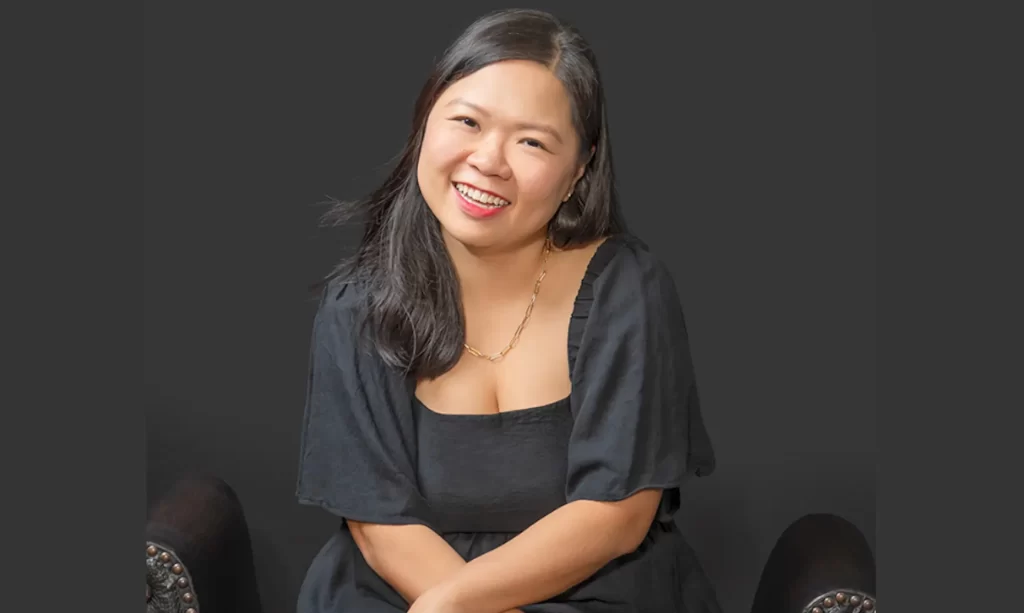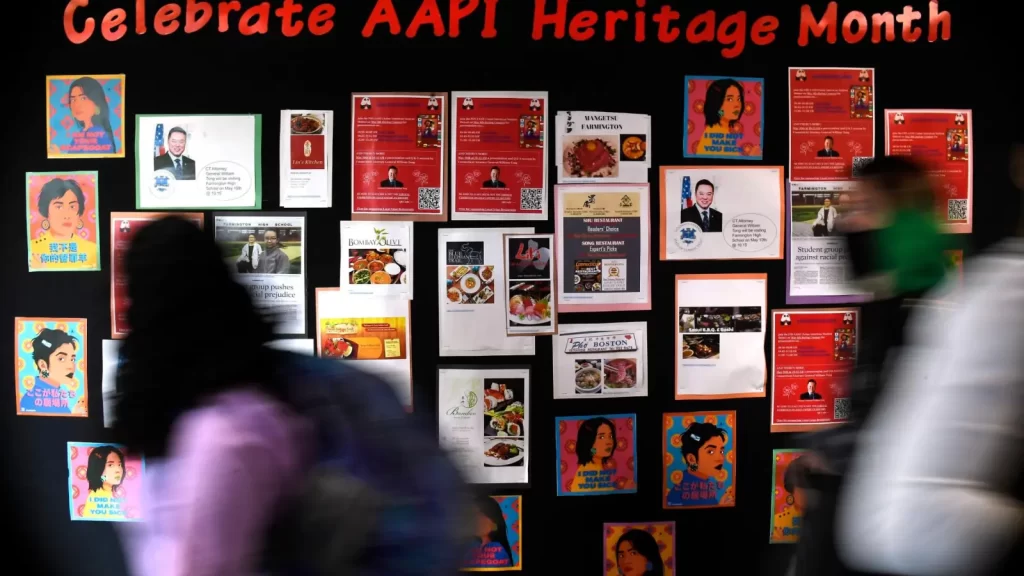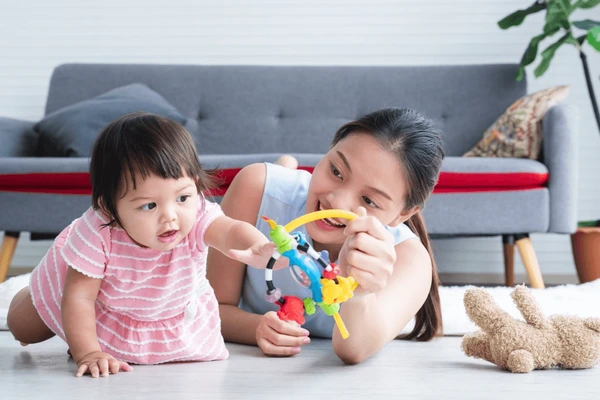Meet Lina Lie, the heart and mind behind The Heartful Mama, a trauma-informed parent coach who blends brain science, somatic healing, and deep compassion to guide parents toward more connected, conscious parenting. In this spotlight, she shares her journey from corporate life to soulful leadership in the home — and the transformative power of reparenting ourselves along the way.
What inspired you to transition from a corporate career into trauma-informed parent coaching?
My own parenting! What started out organically as a personal goal when I had a parent coach support me changed my entire paradigm on how I see parenting, and it inspires me to want to support other parents like me who struggle with wanting to parent their kids differently than how they were raised.
Can you share a moment in your early motherhood journey that deeply shaped the way you parent today?
One incident I vividly recall was putting my firstborn in time-out when he was just over a year old. It was one of the most heartbreaking parenting moments for me. My son was having the worst meltdown of his life, banging at the door, and I was crying on the other side of the door, feeling so helpless and trying so hard to figure out what went wrong. I remembered thinking, “This can’t be right. How can this disconnecting method be helpful to a parent-child relationship?” I never did that again. Connection is always the first thing on my mind when it comes to how I show up in my parenting today. “How can I connect with my children first, before anything else?” “How can I understand my child’s experience better, so I can better support them?” And this connection-first mindset has helped me listen more, notice more, and understand my children more deeply, which directly impacts the quality of my relationship with them.
Many parents know what they should do, but struggle in the heat of the moment. How do you help parents bridge that gap between knowledge and action?
For a lot of us, we live in the mind space a lot. We read the books, we know the science, and understand what we should or should not do on a cognitive level. However, there is a disconnect between our mind and our body. Our body does not have that cognitive capability. Our body often responds based on what it’s been through (our lived history), and so in moments of stress, our body reacts from that place to keep us safe. What I do in my work is to help parents integrate what the mind knows into the body so the body can slowly shift its physiological responses to certain stressors. As a somatic practitioner, I often bring in mind-body practices in my sessions with my clients to help them grow their own awareness of where their bodily sensations reside and move through them with safety and slowness. My goal is not to teach, but rather to guide the parents I work with in recognizing their own experience during those heated moments and creating their own coherent narrative of what is happening for them. And then from that embodied place of mind-body awareness, we can start shifting into the changes we want to see with consistent practice. I often say that you can’t parent from just your mind. Your body needs to believe it as well, and that’s the main goal in the work I do — to help parents parent from a place where their mind and their body are in agreement, and support them in a container that feels safe and brave enough so they know they are not alone in this process.
In your experience, what’s one misconception parents often have about peaceful parenting?
That we are permissive, and we allow our children to do whatever they want so we can have peace in the house. That is the furthest thing from the truth. Peaceful parenting is the hardest work in the world, in my opinion. To be a peaceful parent does not mean allowing our children to do whatever they want. To be a peaceful parent means that we do our own work in staying anchored and grounded in our parenting, and we are not led into the emotional chaos that our children can often bring. It is hard to resist yelling, spanking, threatening, or bribing when our children are ‘acting out,’ talking back at us, or not doing what they are supposed to do. And it is also where the work happens. We stay anchored in our parenting leadership. We are the peaceful leaders in our homes. We get to demonstrate what being a peaceful leader looks like, even in the midst of chaos and protests. It is not permissive or weak. Quite the opposite. It takes a lot of inner strength, confidence, and clarity to be a peaceful leader.
Your coaching is rooted in brain science, nervous system regulation, and attachment theory. How do you weave those concepts into everyday parenting?
With the parents I work with, and in my own parenting, I often like to reflect on these questions as a starting point: Based on what I know about brain science, nervous system regulation, and attachment theory, where is my child at? What does brain science tell me about where my child’s brain development is right now? What does their behavior tell me about where they are in their nervous system? How can I co-regulate with them so they don’t hit the tipping point? What is the quality of my child’s attachment to me — secure or insecure? What is my understanding of my child’s personality? And we go from there. Parenting peacefully is a practice, just like yoga. There is an art and science to it. The more we practice those muscles, the better we get at it. And soon enough, it’ll become an unconscious competency that we have.
What role does self-healing and “reparenting” ourselves play in becoming the parents we want to be?
All of us have parenting blueprints that were passed down to us from our parents. When we parent in our ‘autopilot mode,’ we are very likely going to repeat the same patterns of harm that were given to us when we were children — because there is no consciousness or awareness around those patterns. When there is no awareness, there can’t be any change. When we choose to take that step towards reparenting ourselves, we are essentially parenting our inner child and saying, “You did not deserve this. I am sorry you had to go through this. I am here for you now.” By acknowledging what we did not want to receive as children, we can then start moving into what we do want to receive as children, and we get to design our own blueprint of how we want to show up for our children and in our parenting. Your history is not your destiny. It’s a very freeing experience, in my opinion. We get to choose to be the kind of parent we want to be, with no shame, guilt, or judgment (from our inner voice).
How do you encourage parents who feel overwhelmed or guilty about past mistakes with their children?
We do the best we can with what we have and what we know. We cannot undo mistakes in our past. Give yourself grace. You are also only a human being. Be kind to yourself. Parenting is hard because it is supposed to be hard. When we mess up as parents, we can repair. And now that we know better, we can do better. The beautiful thing about our brain is that it can change over time, for as long as we are alive (thank God for neuroplasticity!). Learn how to repair well with your children. Focus on growing your parent-child relationship. It is never too late.
What advice would you give to a parent just starting their journey into more conscious, connected parenting?
Be compassionate to yourself, surround yourself with like-minded parents, find a coach or a therapist you feel safe with who can guide you to uncover your own unconscious patterns, and remember your WHY for choosing to parent more consciously and conscientiously. This work is not for the faint of heart, and it is also the most meaningful work you can do for your kids and for yourself.
How has your own relationship with your child evolved since you started this deeper work?
My children feel emotionally close to me. They are not afraid to share their mistakes with me. They know I am in their corner, no matter what. They see me as their partner in their childhood, and I am confident in my parenting and extremely grateful to have the relationship that I do with my children. My children are my biggest WHY in my own healing and reparenting work, and I am motivated to continue to work on being their peaceful leader in our home every single day.
Looking ahead, what dreams or goals do you have for The Heartful Mama and the families you work with?
One of the projects I have in the pipeline is to create an online community for parents to come together and share in safe and brave spaces, where they can reflect on their parenting journeys and encourage one another without feeling judged, blamed, or shamed. It’s very important for every parent and caregiver to have a support system like this. Another project I am currently working on is to create a self-paced digital course so parents and caregivers can access the key concepts I teach at their convenience. I am hoping to roll it out by the end of the year — so keep an eye out for it!








